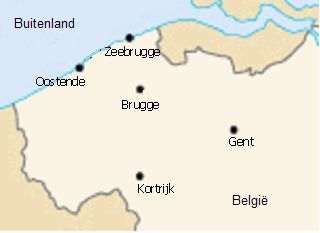Testimony Cedric Hermans (2018-2019)
I did my internship in Spain, more precisely in Barcelona. I worked in one of the largest scientific infrastructures in Southern Europe that is dedicated to biomedical translation, PRBB (Parc Recerca Biomèdica Barcelona). It’s a collaboration between 6 big research PAGE 2 areas. My group belongs to the Biomedical Informatics unit (GRIB), which is a joint between the IMIM and the CEXS-UPF. This group can be split up even further to my research group: Evolutionary genomics. The group I worked in can be is linked here: grib.imim.es/research/evolutionary-genomics/. Most of the work done here is bioinformatics, but sometimes collaborations occur resulting in new personal data. We mainly focus on High-Throughput sequencing, from start to finish. The project I work on is focused on comparing 2 major High-Throughput sequencing techniques: RNA-Seq and Ribo-Seq. We would like to see if they give us similar results or not for the same conditions as well as looking at the upstream open reading frames. We use all techniques seen in the High-Throughput course, such as fastqc, multiqc, trimmomatic/cutadapt, bowtie2, samtools, htseqcount and mainly use R to perform differential gene expression analyses. The colleagues here are very nice, and whenever you have questions you can always ask them. If you want to participate in all the conversations, it is advised to know some Spanish, as underling conversation are often had in Spanish. But if you don’t know Spanish and you ask them, they will always switch to English. My accommodation is a little apartment on the ground-floor level in Barceloneta. It’s about a 10-minute walk to the PRBB from here. The prices are expensive however. The apartment has beds for 4 people, but it is not advised to live with 4 people continuously. It’s good if you have friends/family that stay for a few days. It’s a rather noisy neighborhood, especially since it has single glass windows. Even after midnight a lot of noise is coming from the streets. I think its trucks for all the little shops that are scattered throughout Barceloneta, but I didn’t go to find the source. It has a small kitchen with 2 furnaces, but the pots only fit ¾ on it if you use them at the same time. It also has a microwave and tv, a laundry washing machine but no dryer. There is a big washing facility within a 50 meter walk where you can use a big dryer for 2 euros per 15 minutes. I found my apartment on housinganywhere.com/. This is a nice website to search housing on because it keeps the money safe until 48 hours after arrival. If something is wrong with the housing, you can still cancel and get your money back. The following payments are directly to the landlord. The food and drinks are not that expensive, I would say around the same price as in Belgium, if not a bit cheaper. Since I walked to my internship and back, I had no transportation costs. There is a lot to see in Barcelona, a short list is: the Sagrada Familia, Parc Güell, the gothic quarter, the magic fountain, la Rambla, the beach… The city is very lively as well. On almost every corner of the street, there is something to be seen. So make sure to go and explore as much as you can. In general Barcelona is a really nice experience, with great food and activities. Some downsides for me personally are for example the eagerness of the catering industry. Basically: every restaurant or bar you walk by in the touristic areas, they will ask: would you like a drink, or do you want to eat something, often whilst shaking your hand and calling you their friend. Also, on a lot of touristic places, their will be “blanket salesman” who try to sell you little gifts and such. However, if you buy this and you get caught by the PAGE 3 police, you can be fined for buying something from them. But these things do not outweigh the positive experiences. They are just minor inconveniences. Personally, I think there is mostly only pros to an international traineeship. You get to know a new culture, a new language (if it’s another language), different kinds of people, the place you work in often has a lot of international people as well, different styles of food. But in this case, depending on what you want to do after the traineeship, it could be better to do the traineeship in Belgium. If you would like to start working for example, a decent amount of people get a job offering at their traineeship if they did well and can start immediately. This is a bit more difficult to accomplish in an international traineeship, since most work places are very research heavy and often consist of master students, PHD people or postdoc people.


